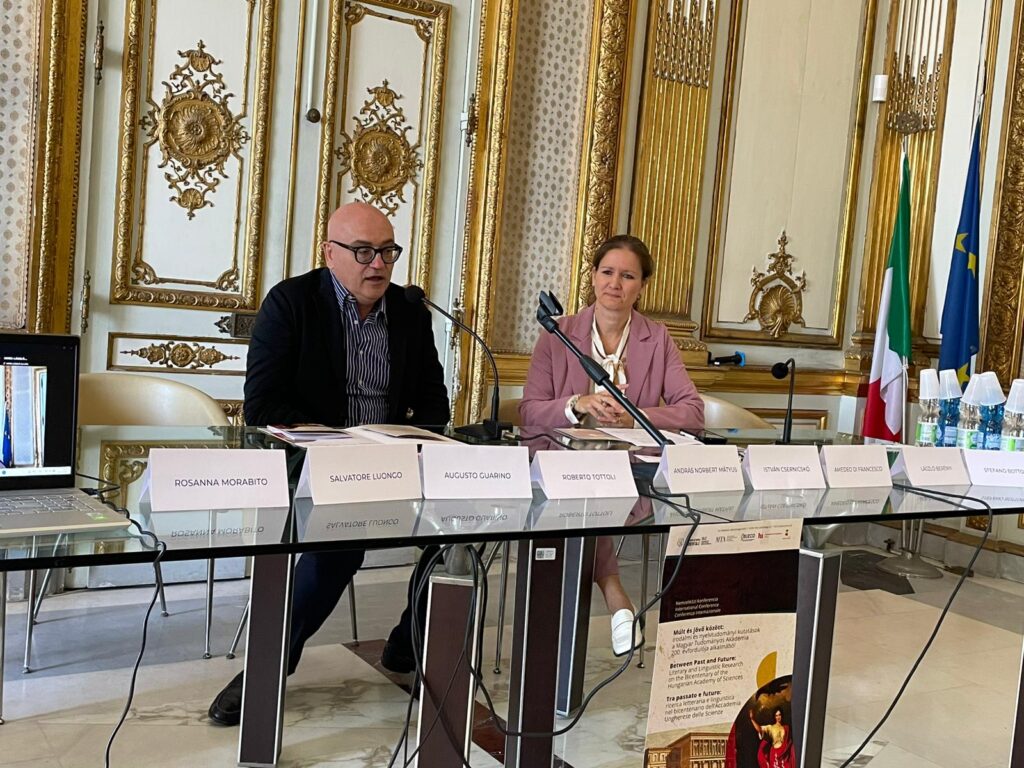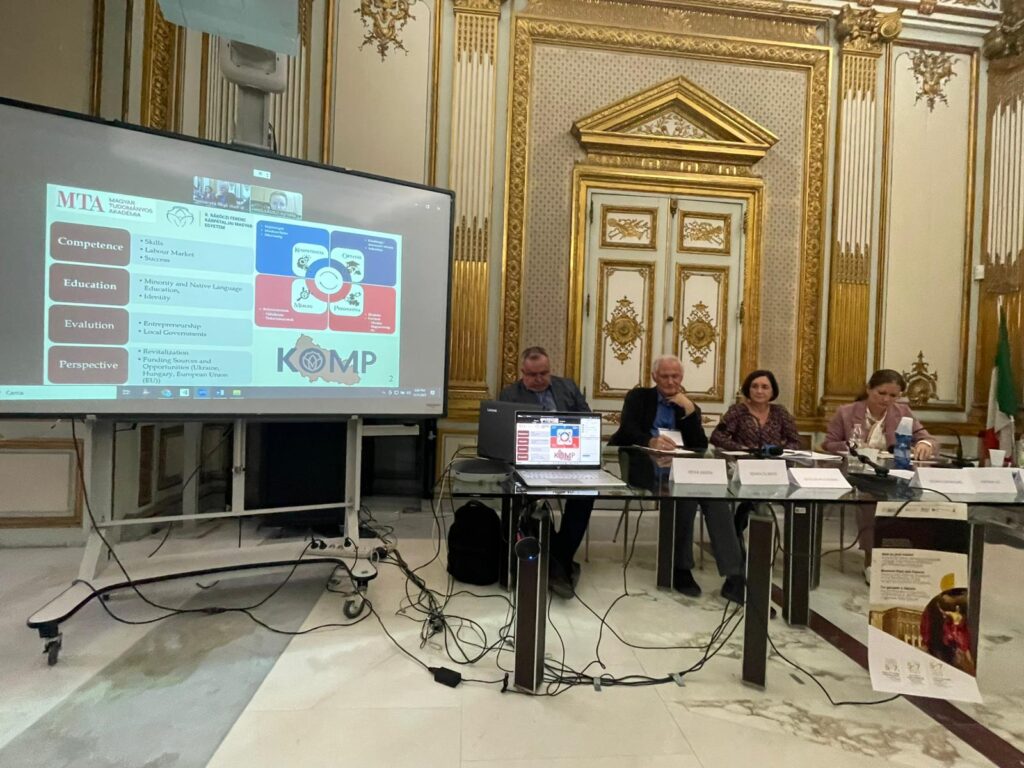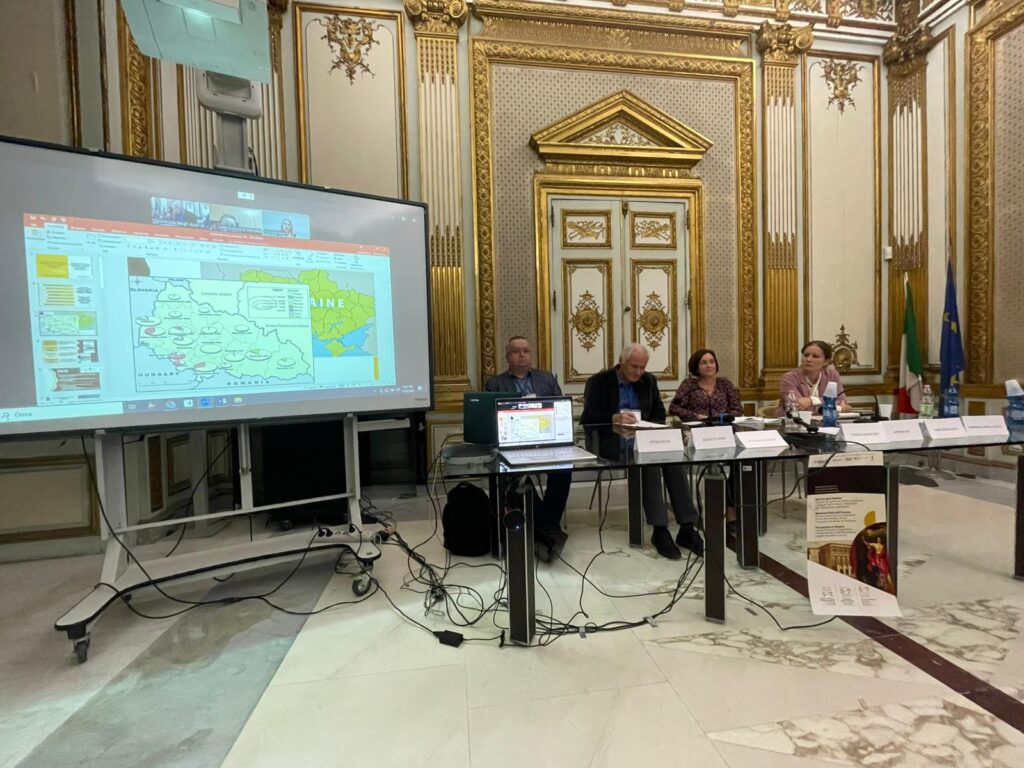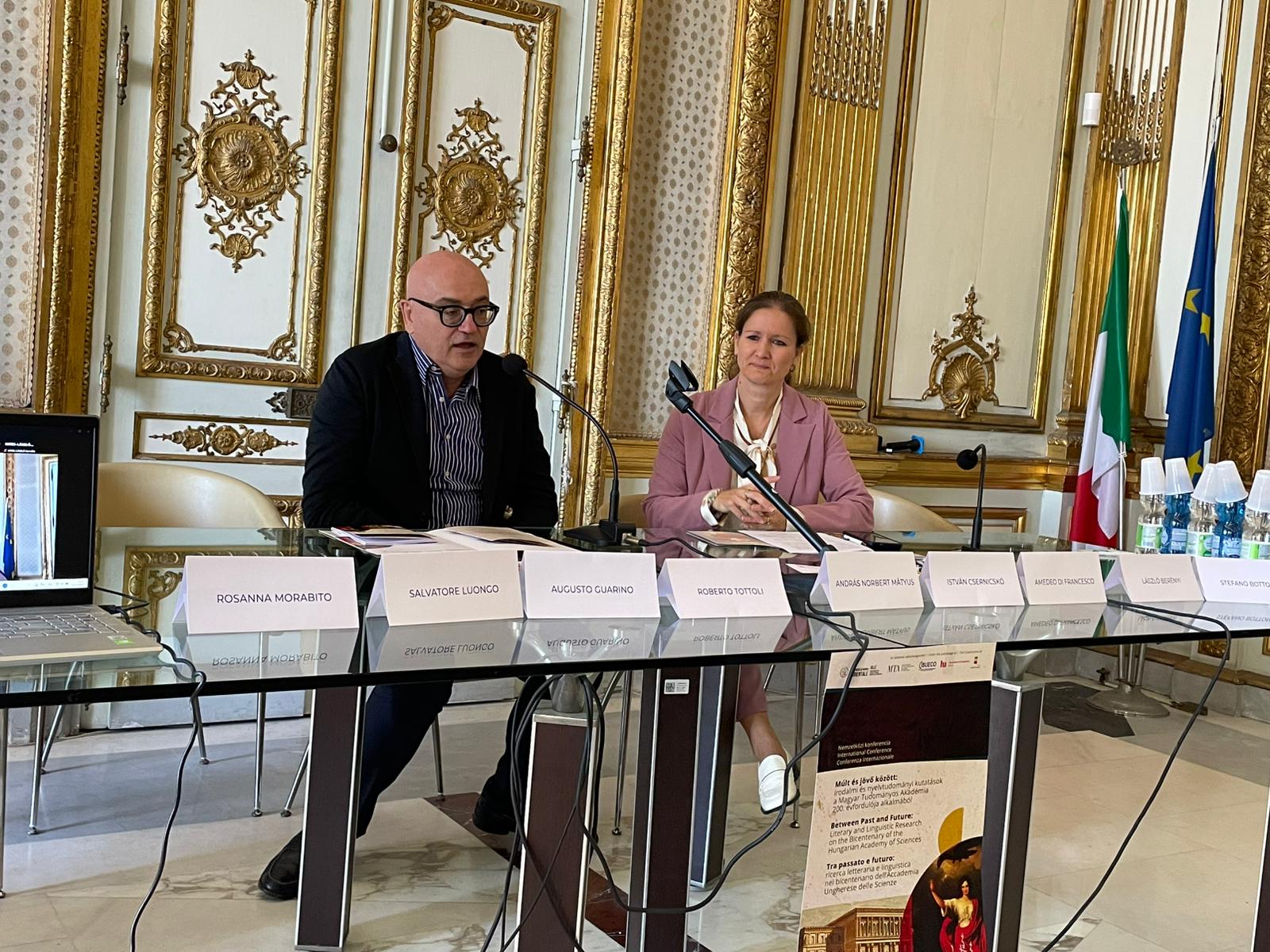Researchers of the Ferenc Rákóczi II Transcarpathian Hungarian College of Higher Education presented their latest research findings at the prestigious international scientific conference organized by the University of Naples L’Orientale, titled “200 Years of the Hungarian Academy of Sciences: The International Dialogue of Hungarian Sciences and Culture.” The conference was held on the occasion of the bicentenary of the Hungarian Academy of Sciences. Its main themes included language and identity, translation and interculturality, as well as the role of artificial intelligence and language technology in the humanities. The event took place from 5–7 November 2025, in cooperation with Eötvös Loránd University, the University of Pannonia, and the University of Miskolc. The Ferenc Rákóczi II Transcarpathian Hungarian University was represented by István Csernicskó, Rector, Anikó Beregszászi, Head of the Department of Philology, and researchers of the Hodinka Antal Linguistics Research Center, Kornélia Hires-László and Adrienn Vig, who participated in the conference online.

In their presentation titled “Competence Measurement in Hungarian Minority Education: Challenges and Opportunities in Ukraine”, Anikó Beregszászi and Kornélia Hires-László introduced the findings of the KOMP Project. Their research examined the language competences of Hungarian students in Transcarpathia, with particular attention to mother-tongue reading comprehension, as well as Ukrainian (state language) and English (foreign language) proficiency. Using cluster analysis, the study identified performance patterns among students and revealed that a multilingual educational environment has a positive impact on linguistic skills. The results demonstrated that Hungarian-language schools continue to provide a solid foundation of knowledge and maintain high educational standards even under the challenging conditions caused by the war.

István Csernicskó and Adrienn Vig presented their lecture titled “Language APL Project: Linguistic Landscape and Minority Language Use in Transcarpathia.” Their talk focused on the linguistic landscape and the use of minority languages, building upon the previous research conducted by the Hodinka Antal Linguistics Research Center, and connecting to a new linguistic landscape study planned for 2025.
The upcoming project aims to map the digital linguistic landscape and explore opportunities for linguistic accessibility. The research highlighted that while bilingualism is declining in official contexts, it remains a living practice in civil and business life. The linguistic landscape methodology—analyzing public signage, shop names, and institutional inscriptions—proves to be an effective tool for understanding language policy and social change.

In their presentation titled “Competence Measurement in Hungarian Minority Education: Challenges and Opportunities in Ukraine”, Anikó Beregszászi and Kornélia Hires-László introduced the findings of the KOMP Project. Their research examined the language competences of Hungarian students in Transcarpathia, with particular attention to mother-tongue reading comprehension, as well as Ukrainian (state language) and English (foreign language) proficiency. Using cluster analysis, the study identified performance patterns among students and revealed that a multilingual educational environment has a positive impact on linguistic skills. The results demonstrated that Hungarian-language schools continue to provide a solid foundation of knowledge and maintain high educational standards even under the challenging conditions caused by the war.

István Csernicskó and Adrienn Vig presented their lecture titled “Language APL Project: Linguistic Landscape and Minority Language Use in Transcarpathia.” Their talk focused on the linguistic landscape and the use of minority languages, building upon the previous research conducted by the Hodinka Antal Linguistics Research Center, and connecting to a new linguistic landscape study planned for 2025.
The upcoming project aims to map the digital linguistic landscape and explore opportunities for linguistic accessibility. The research highlighted that while bilingualism is declining in official contexts, it remains a living practice in civil and business life. The linguistic landscape methodology—analyzing public signage, shop names, and institutional inscriptions—proves to be an effective tool for understanding language policy and social change.

The participation of the Rákóczi University’s researchers at the Naples conference contributed significantly to enhancing the international visibility of the Transcarpathian academic community. Our institution was honored to take part in the event and wishes the University of Naples L’Orientale continued success in launching and developing its Hungarian Studies program.

